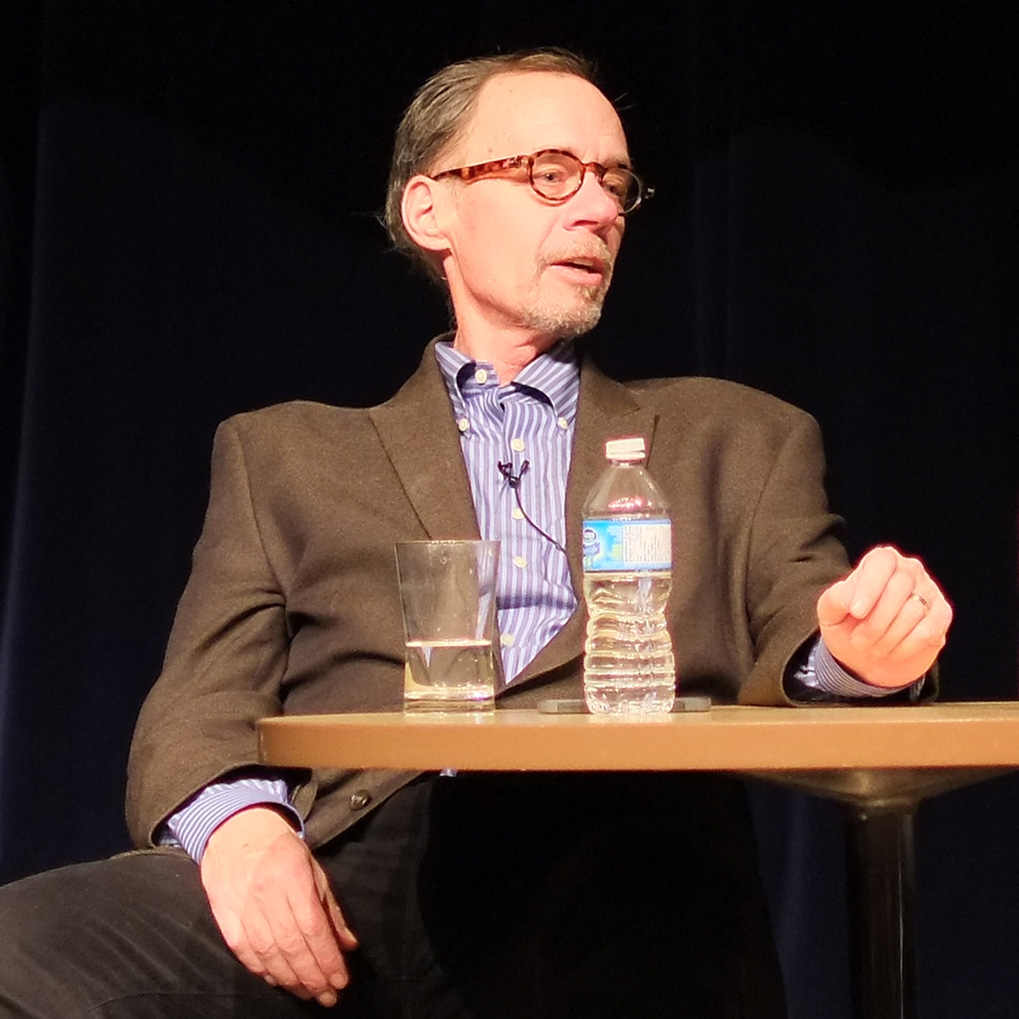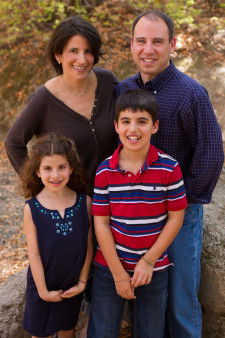The Darkest Secret? — Musings on the Death of David Carr

“David Carr 2013” by Ian Linkletter – Own work. Licensed under CC BY 3.0 via Wikimedia Commons.
What could be more shameful, more blameworthy, more deserving of secrecy than leaving your infant twins alone in a car for over an hour while you go score some drugs? Well, perhaps, lung cancer.
David Carr died a few days ago. He was a NYT journalist, renown for his blunt, searingly honest writing. I like his style. Honesty is important to me, and I appreciated his recent piece on Bill Cosby where he called out journalists — including himself — for keeping silent for so many years. He was forthcoming about some very unflattering details in his own past, including addiction to crack cocaine and alcoholism.
The initial news coverage did not mention his cause of death. I’ve heard it said that when the cause of death isn’t mentioned, odds are pretty good it was lung cancer. I can’t say for sure whether that’s a generally true statement, but it turns out to be true here. Autopsy reports show that “Mr. Carr died of complications of metastatic small cell neuroendocrine carcinoma of the lung.” [Note the NYT headline just generically references “cancer.”]
And this is where I knit my eyebrows and wonder … did he know that he had lung cancer? Did this reporter, famous for his unflinching honesty about the problems in his life, keep his lung cancer diagnosis a secret from the public, or was he completely unaware of this cancer?
On the one hand, it seems improbable that someone brave enough to write damaging details about himself (like leaving his infant babies alone in a car while he scored some drugs) would shy away from the stigma of lung cancer. But, on the other hand, we have a man with a good job, living in an area with great medical resources (NYC). We have a man with a family he cared about and a spotty medical history (he had previously battled cancer in the form of Hodgkin’s lymphoma) – two compelling reasons to monitor his health.
I’ve been in the lung cancer world over a year now, and I have heard many, many stories of people only discovering their lung cancer at a late stage (myself included). But, I have not yet heard of a story where the patient did not discover their lung cancer at all. Lung cancer can be a sneaky, invisible bastard in the early stages, but as it progresses, symptoms definitely ramp up. Is it possible that Carr didn’t notice his symptoms? Is it possible that doctors for a 58 year old patient, with a history of both cancer and smoking, did not run tests to check?
Honestly, I’m not sure which is worse. Is the public’s surprise that David Carr had lung cancer just the latest example of lung cancer’s stigma? i.e., a person will freely put his worst foibles, bad choices and health traumas out for public consumption SO LONG AS IT’S NOT LUNG CANCER. Or, is the medical system so broken, and the lung cancer detection methods so poor, that someone can drop dead of this disease before receiving a diagnosis?
Either answer is unacceptable. Which is our darkest secret?
____
UPDATE: Someone messaged me and said she heard a report that it was a “particularly aggressive” type of lung cancer and she didn’t think he knew and was ashamed. I typed up a response to her that I thought others might find interesting:
“I tend to agree with you (doubtful it was shame). But, many, if not most forms of lung cancer including my own are “particularly aggressive” and yet, still, I have not heard of this happening. I’m sure it’s possible, I’m just saying that that does not explain it to me. And that goes back to my point — if it wasn’t detected, it should have been.
Even from where I sit, thousands of miles away, I can see some symptoms on the pictures and video clips (hoarse voice, gauntness, a marked change in weight/appearance from earlier pictures). I’m guessing there were likely other symptoms too (like fatigue, coughing, shortness of breath or low O2 saturation). Of course, the symptoms of lung cancer can look like other things (this is why so many of us have the experience of being misdiagnosed with asthma, etc. first). But, for a person with a history of both smoking and cancer to have any of these symptoms — that should’ve been an easy call for a doctor to run tests.
My real — utterly unsubstantiated — guess is either (a) he did know, but only recently and time ran too short for him to do anything about it, including speak out, (b) he willfully ignored signs and didn’t see a doctor, or (c) he did go see a doctor who completely screwed up and missed what shouldn’t have have been missed. In any case, I just wanted to raise the issue so people start noticing, questioning and talking about both the stigma and the fact that we have almost zero early detection methods for the #1 cancer killer in the world (and the fact that those two things are related). We have to see it first, before we can change it.”


